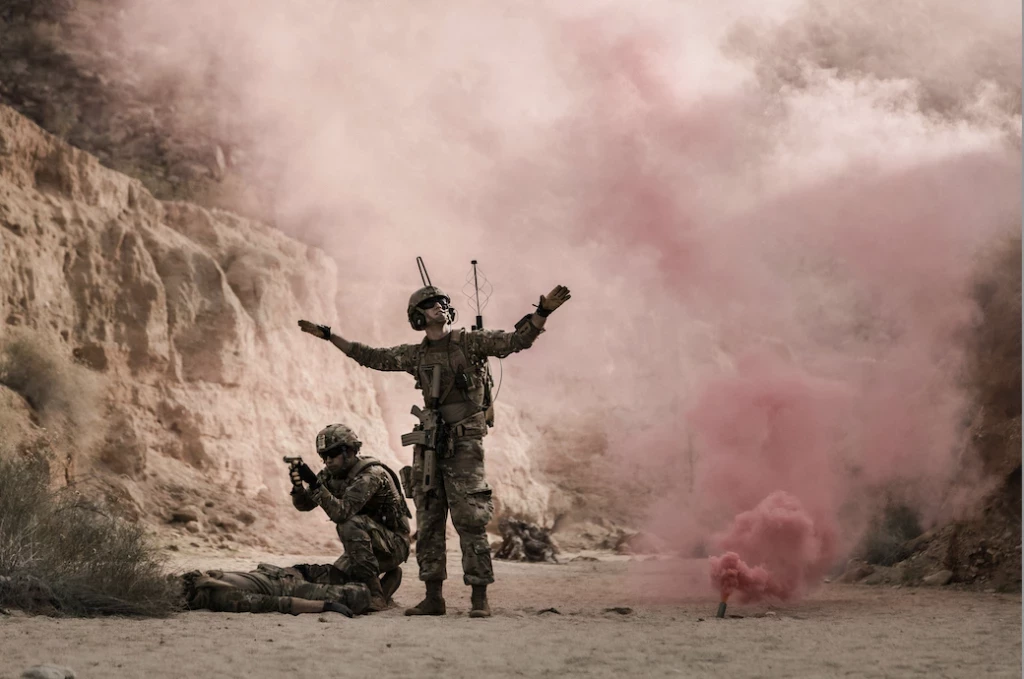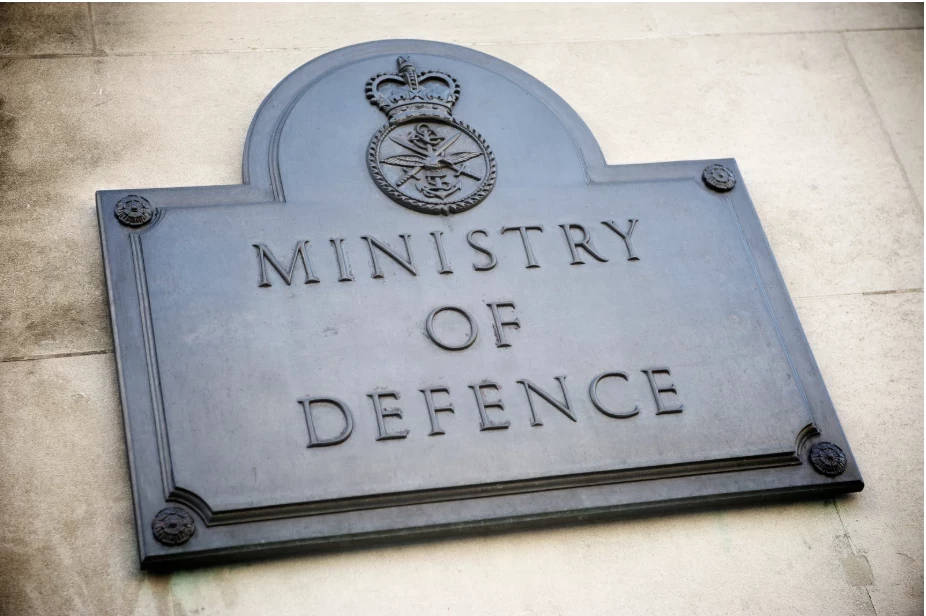Moscow leverages 'heroism' in information operations against the Baltic States
Add bookmarkPro-Moscow events and rallies have been staged commemorating Victory in Europe Day, not only in Russia and former Soviet republics, but in more than seven US cities; New York, Seattle, Chicago, Denver, Orlando, Houston and Boston; in London, the Baltic States, Poland, Israel and Argentina.
Nothing could seemingly be more worthy than honouring those who laid down their lives and made sacrifices in the 'Defeat of Fascism 1941-45'.
These global activities are however coordinated by a 'front group' entitled the “Immortal Regiment,” which came to life in May 2012 through TV2, one of Russia's first privately owned TV stations.
Its underlying goal is to favourably portray the Soviet occupation of eastern Europe, and rehabilitate the USSR, by projecting the notion of the heroic struggle by Russian 'liberators' who facilitated it.
In 2015, with President Vladimir Putin marching in the “Immortal Regiment's” Moscow parade alongside others carrying banners and veterans' portraits, the group already boasted 300,000 members, with events in 500 cities and 15 countries, including the self-proclaimed republics of eastern Ukraine.
[inlinead]
Although registered as a non-political, not-for-profit “social movement” and like all other state-approved Russian schemes justified in legalistic jargon, the organisation runs into problems in countries in which the display of Soviet symbols is prohibited.
By design, Soviet atrocities, sometimes by those being honoured, deportations from occupied territories, political repression, labour camps and the immense Gulag system are seamlessly ignored and swept under the carpet.
The subject of Russian war dead and current Russian casualties is a topic in itself.
The movement serves Russia's foreign information operations of wrong-footing, testing and exploiting situations and weaknesses within a number of 'target countries'.
The landscape becomes yet more vexatious when one comes to countries and territories that were occupied by Soviet forces for more than 40 years after they were “liberated”.
- Poland was a Warsaw Pact member with forces stationed on its soil for the 46 years of the Pact's existence.
- The Baltic States, now NATO and EU members, were Soviet republics and have substantial Russian-speaking populations.
- Parts of Ukraine and Georgia have been re-occupied recently by Russia, with the anniversary only celebrated in the Russian occupied, breakaway parts of the countries.
In the Baltic States, matters take on a more direct tone. Stories have been seeded leading up to Victory Day by Moscow and locally-based Russian language media.
Pleasant coverage has included stories about ordinary residents of the Baltic countries preparing for 9 May, including veterans and victims of Nazism.
Other news critical of the Baltic States covers Russian journalists being refused entry to Estonia, biker gangs with Soviet emblems banned from Lithuania and anti-Russian laws being passed in Latvia.
Baltija.eu, which describes itself as the portal of Estonia's Russian community, on 4 May talked of human rights activists being outraged by provocative statements, the provocations of Victory Day, and Estonian authorities putting pressure on the activists at "random".
The "Immortal Regiment” is headed in Estonia by a Dmitri Linter who, largely as 'the only show in town', has been respected by much of the country's ethnic-Russian population.
Describing himself as an anti-fascist and human rights activist, Linter was leader of Kremlin-backed organisation "Night Watch" (Nochnoy dozor) which was prominent in the 2007 fatal "Bronze Night" riots in Tallinn, which coincided with three weeks of national level cyber attacks, believed to have originated from Russia. He was jailed for six months but released without charge.
Linter's application for a 6pm “Immortal Regiment” Victory Day rally was refused by the authorities because the main wreath laying ceremony took place earlier, and the evening event could attract “marginal” elements and lead to a breach of the peace. Mainstream Russian veterans' groups also rejected the proposal for the same reasons and saw the proposal as provocative.
Estonia's Internal Affairs Ministry added that most Estonians associate Soviet symbolism with occupation and its public display can lead to disorder.
Undaunted, Linter with the help of Moscow, concocted broadcasts and stories that correspond to the Russian word Vran'yo or boastful flights of fantasy, which appeal to the sort of person who is likely to get involved in disturbances and, just as importantly, to a large tranche of Russia's domestic population.
He claimed that the real reason for the refusal was that he was warned that there were NATO facilities on the proposed route and armed guards would open fire were there any trouble.
The mainstream Russian Vesti - Rossiya 24 TV station aired a show on Thursday 5 May, including interviews with Linter, and doctored news footage, encouraging Russian speakers to repeat the success of a non-existent 14,000-strong, 2015 "Immortal Regiment" rally in the town of Sillamäe, which though depicted never in fact took place.
He went on to claim that he had been threatened, manhandled and searched by Estonian border officials when he travelled by train from Moscow, and Soviet-Estonian memorabilia had been confiscated.
The thrust of the fictitious Sillamäe and other anti-Baltic stories is to delegitimise and dehumanise the Baltic States, depicting them as closet-Nazis and Holocaust supporters, while projecting the virtuous, heroic struggle against them by local Russian 'liberators'.
Any critics of Russia's occupations or current aggression are equally demonised, as by definition anyone who opposes Russia 'must be a fascist'.
It generates a situation in which hostilities against the Baltic states can be accepted as justified by the Russian public and international community and expected with resignation by the Baltic states and their populations themselves.
The propaganda comes ahead NATO's Warsaw Summit on 8-9 July and against the backdrop of the arguably ill-considered pronouncements by US NATO Ambassador Douglas Lute effectively vetoing further NATO enlargement and the capability of the current NATO Baltic Air Policing Mission to transition into an Air Defence Mission, with appropriate rules of engagement and the ability to expand. There is likewise no regional Standing Defence Plan.
Lute's statements are apparently “expectation-management signals” to the “Hill” and the DoD in Washington DC, which will simply delight Moscow and the Kremlin.
Those living in the region believe that deterrence can no longer be achieved by threats of sanctions or occasional symbolic military deployments, but by the kinetic ability to stop and 'deny' any aggression or attempts at territorial acquisition.






















